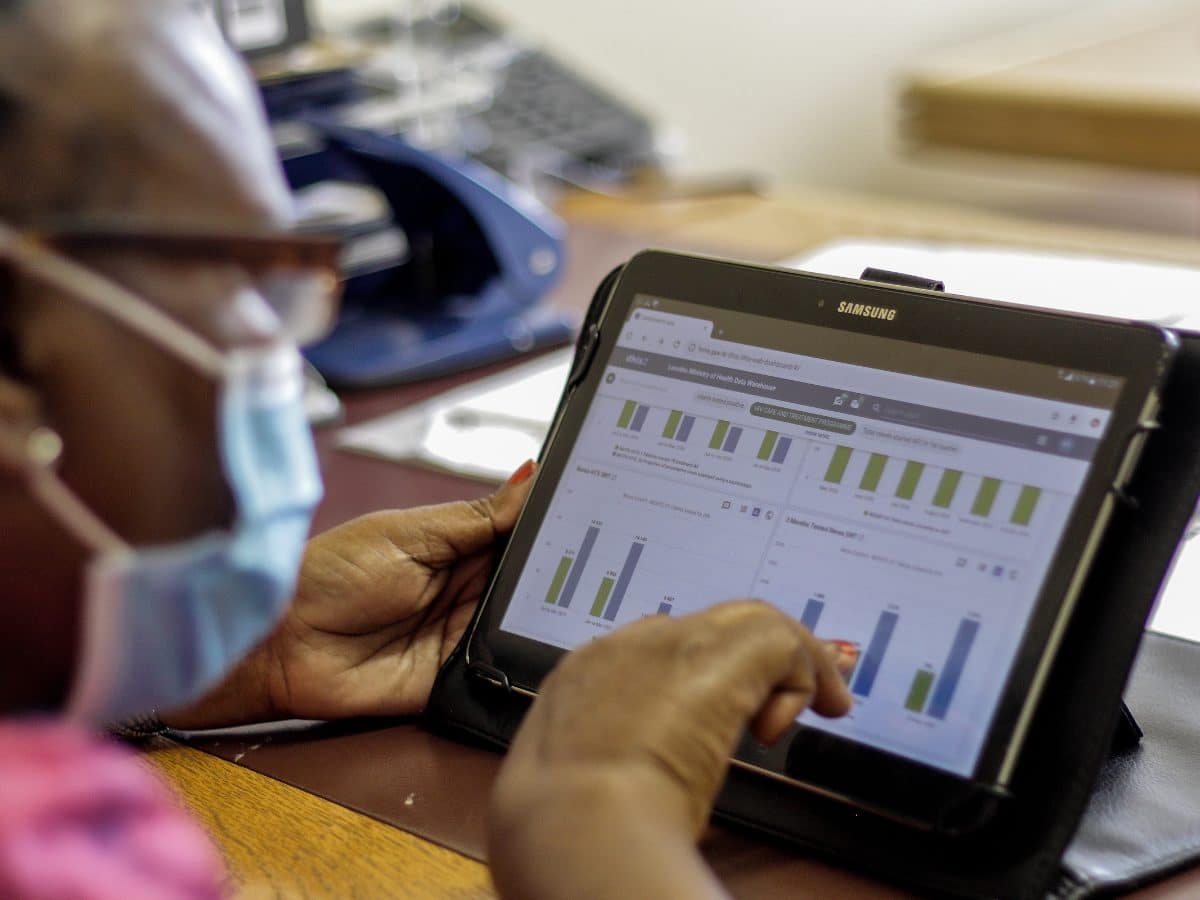Every year, over 10,000 women are diagnosed with cervical cancer in Tanzania, and more than 6,000 die from the disease. Cervical cancer is the most frequent cancer among women in the country. Globally, women living with HIV have a significantly higher risk of developing cervical cancer compared to women without HIV.
Cervical cancer is primarily caused by persistent infection with human papillomavirus (HPV), a common sexually transmitted virus. The HPV vaccine is a proven and effective prevention method that protects girls and young women against the primary cause of cervical cancer. Treatment procedures for cervical cancer include cryotherapy and thermocoagulation, both of which are used to remove precancerous lesions and prevent the development of invasive cancer.
Through the FIKIA+ project – funded by the U.S. President’s Emergency Plan for AIDS Relief (PEPFAR) through the Centers for Disease Control and Prevention (CDC) – ICAP in Tanzania supports a comprehensive, integrated HIV and cervical cancer screening, protection, and treatment program at 200 health facilities in the cities of Mwanza and Geita to reduce morbidity and mortality associated with cervical cancer.
In the past 12 months, the program has screened nearly 50,000 women living with HIV for cervical cancer.

Using a “screen, triage, and treat” approach, ICAP has supported thousands of women at high risk of cervical cancer to access protection and treatment services.

Nearly 500 health care providers have received ICAP-supported cervical cancer training on such areas as use of new medical supplies and early detection of the disease.
Across the participating health facilities, ICAP supports the “screen, triage, and treat” approach and facilitates referrals from primary care providers to specialized facilities for timely cancer diagnosis and treatment. ICAP also supports HPV vaccination for girls 9-14 years of age.
Over the last three years, the program has administered HPV vaccinations to more than 4,000 girls living with HIV. Supported facilities have conducted over 160,000 routine screenings of women living with HIV and provided treatment for more than 2,000 women with precancerous lesions. ICAP facilitated the referral and treatment of over 300 women with large lesions. More than 480 health care providers have received ICAP-supported cervical cancer training.
“Every day at the clinic, I educate women on the importance of early cervical cancer screening,” said Anicia Boniphace, a nurse at Karume Health Centre in Mwanza working in the cervical cancer unit. Passionate about helping women living with HIV receive quality care, Anicia received training from ICAP to provide cervical cancer screening.
“By detecting and treating abnormal cells, early screening protects against the development of cervical cancer,” she added. “It can also assist in detecting cervical cancer at an early stage, which will allow timely treatment. With the thermocoagulation machines, treatment can be done at the [local] facility, compared to before, when women had to go to town [the city] for treatment. Other women failed to do so due to transport costs and other challenges, but now the service is here.”

A health worker prepares a hand-held thermocoagulation machine to treat precancerous lesions of the cervix.
As a part of the program, ICAP donated 20 hand-held, battery-operated thermocoagulation machines to treat precancerous lesions of the cervix, a game-changing contribution that expands service provision in mobile and off-grid settings. ICAP also facilitated the procurement of 98 cryosurgical tips – specialized tools used to deliver freezing temperatures to target tissues – and maintenance of 57 cryotherapy machines to ensure uninterrupted screening and treatment services.
In addition, ICAP facilitated the training of 93 health care providers and donated 93 smartphones to facilitate smartphone-enhanced visual inspection under acetic acid, which helps highlight abnormal tissues from the cervix. Through mobile applications, this innovative technology enables providers to capture and share photos of the cervix, which are then immediately analyzed and compared using artificial intelligence. The images are also shared with secondary reviewers for quality management and feedback to the service provider before the client leaves the screening site. Over 5,400 photos have been shared and reviewed within the past six months.
Among 49,485 women living with HIV who were screened for cervical cancer between October 2023 to December 2024, 1,387 women were found with early signs of precancerous lesions. All identified clients received appropriate treatment with the thermocoagulation machine.

Mariam Mchele received screening and treatment for cervical cancer through ICAP’s program.
Mariam Mchele is one among many women who received treatment via the thermocoagulation machine at Karume Health Centre. At first, she hesitated to go to her appointment. But when she did decide to go, she met nurse Anicia in the cervical cancer unit, who was providing education to other women in her community on the importance of cervical cancer screening. It was then that she decided to get screened.
Mariam’s test results came back positive, and she promptly received treatment.
“My health is first priority,” she said. “I appreciate the quality service I received, and I encourage other women living with HIV to do the same.”
“I am very pleased with the support that ICAP is offering to the regional and local government health management teams and health care providers,” said Ayoub Msalilwa, ICAP technical officer overseeing the cervical cancer program, “who play the key role in protecting women from cervical cancer and managing pre-cancerous lesions for healthier outcomes.’’
About ICAP
A major global health organization that has been improving public health in countries around the world for two decades, ICAP works to transform the health of populations through innovation, science, and global collaboration. Based at Columbia Mailman School of Public Health, ICAP has projects in more than 40 countries, working side-by-side with ministries of health and local governmental, non-governmental, academic, and community partners to confront some of the world’s greatest health challenges. Through evidence-informed programs, meaningful research, tailored technical assistance, effective training and education programs, and rigorous surveillance to measure and evaluate the impact of public health interventions, ICAP aims to realize a global vision of healthy people, empowered communities, and thriving societies. Online at icap.columbia.edu








